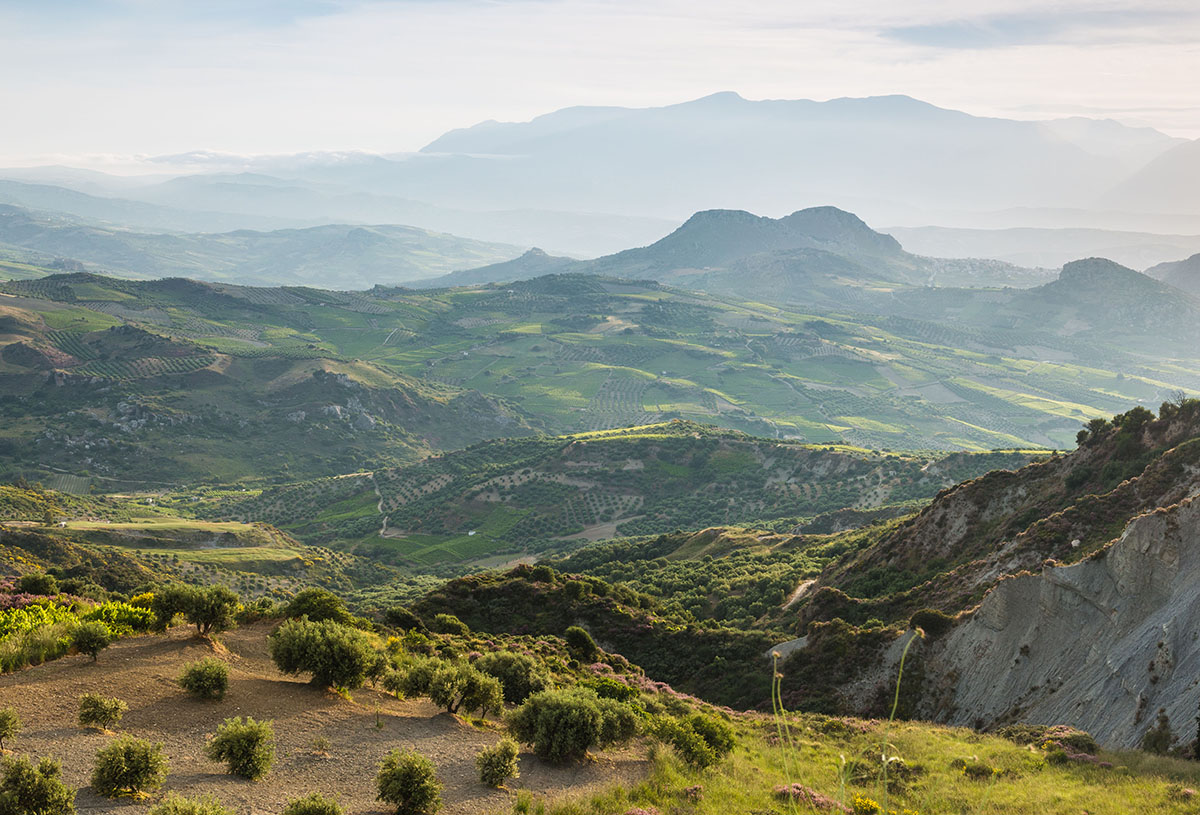2nd EDUCATIONAL TRIP BY NEA PASEGES’S PROGRAM TO NAXOS AND SANTORINI, FOR THE INTRODUCTION OF PDO & PGI PRODUCTS
In relation to the promotional program “Little Treasures of Europe”, which is supported by the European Union and carries the stamp “Enjoy It’s from Europe”, we are given the opportunity to get to know better the PDO (Protected Designation of Origin) & PGI (Protected Geographical Indication) products and learn more about the co-op producers of Greece. More specifically, NEA PASEGES (Greek Confederation of Unions of Agricultural Cooperatives) organised the 2nd educational trip of introduction to the local PDO & PGI products of Naxos and Santorini, with the aim of spreading awareness about the institution of co-ops and the development of the concept of co-ops.
The group that visited the islands of Naxos and Santorini for a five-day trip consisted of journalists, opinion leaders and food bloggers. They enjoyed a warm welcome from the co-ops’ presidents and were given tours at the co-ops’ facilities to learn about their work.
Between the 28th and 30th of April, the group visited EAS Naxou (Coalition of Farmers’ Cooperation of Naxos) and was impressed by the Coalition’s commitment to farm sustainably and cooperatively. The also learned about the Coalition’s innovative actions and initiatives. Moreover, they had the opportunity to visit up close the pastures and get to know the special environmental conditions in which the cows, sheep and goats live and grow. It’s important to underline that Graviera Naxou PDO cheese owes its uniqueness to its production process, consisting of a minimum of 80% cow’s milk and a maximum of 20% goat & sheep’s milk, and the addition of the traditional rennet called ‘pytia’. Following the tours, tastings took place with Graviera Naxou PDO cheese as the focus.
Additionally, the group met with local PGI potato producers, who shared with them their experience of working at the co-op. The PGI potatoes produced by members of the co-op, after the necessary control, are packaged and stored at the refrigerated facilities of the potato packing plant of the EAS, which the group also visited. The PGI potato of Naxos is also an important part of the local gastronomical heritage. This type of potato is cultivated exclusively on the island of Naxos, has a unique taste and texture, and is high in fibre.
PDO Graviera Naxou and PGI Potato are both important ingredients of the local gastronomic culture of Naxos. These two products can most definitely bring the flavour of the Greek islands to the consumers’ table.
On the 1st and 2nd of May, the group visited the volcanic island of Santorini, which is a landmark of the Cycladic archipelago. It’s the perfect destination for travellers who are in search of a unique adventure. The enchanting landscape of the volcano’s caldera, in combination with the gastronomy, will provide them with an unforgettable experience. The island is also known for its PDO products: Assyrtiko wine, Fava (yellow split peas) and Tomataki (cherry tomatoes). Assyrtiko PDO wine is produced in the local vineyards of the co-op and is very popular with wine lovers all over the world. It’s a testament to the island’s rich tradition of wine production.
PDO Assyrtiko is a white grape variety which is cultivated on the island of Santorini. It has a special mineral character, with a fine aroma of citrus and green apple. Assyrtiko PDO is a dry, crispy wine that pairs wonderfully with seafood. It is considered one of the most important white wines in the world and is produced by the co-op Santo Wines.
PDO Fava (yellow split peas) is a traditional dish of Santorini. It is produced by the native plant “lathouri” (Lathyrus clymenum) that grows in Santorini, has tiny purple flowers and can be found on eight more Cycladic islands. The soil of Santorini is volcanic and presents an especially high concentration of nutrients.
PDO Tomataki is a local ecotype of the variety Lycopersicon esculentum Mill, which has a historical origin, a distinct identity, additive variance, wide adjustability to drought and the volcanic calcium alkaline composition of the Santorinian soil and is tightly connected to the traditional system of low inflow cultivation.
The co-ops of Naxos and Santorini are necessary for the islands’ economy, since they provide local producers with the opportunity to access a larger market, increase their purchasing power and get access to better services and products. This allows them to increase their yield and incomes, which in turn contribute to the total financial development of the islands. As it can be understood, co-ops are an important source of employment, which constitutes them as a crucial part of the economy. Incidentally, the functionality of the co-ops is a matter of life and death for the agrarian economy and the country’s development.
The journalists left the two islands having a much better understanding of the importance of co-ops and their potential to improve the life of people who live in farming areas. The journalists’ stories will help spread the message of the co-ops to the entirety of Europe and beyond.
“Little Treasures of Europe” that participate in the program are a first-hand opportunity to get introduced to special Greek products such as: feta, graviera and xynomyzithra cheeses, olive oil, fava (yellow split beans), tomataki (cherry tomatoes), Corinthian raisins, potato and wines from Agrinio, Aigio, Kalavryta, Nemea (Corinth), Avia and Sterna (Messinia), Zakros, Koutsouras and Mylopotamos (Crete), Naxos and Santorini – all of them traditional products of high quality and nutritional value, produced by the co-ops of each area.
NEA PASEGES, with its actions, proudly supports all of its members, thus proving its faith in its producers and giving them the opportunity to showcase their products through the printed and online campaign, as well as events that will take place along the lines of the program.
You can find out more about the program, our products and producers on the Website, Facebook and Instagram.




